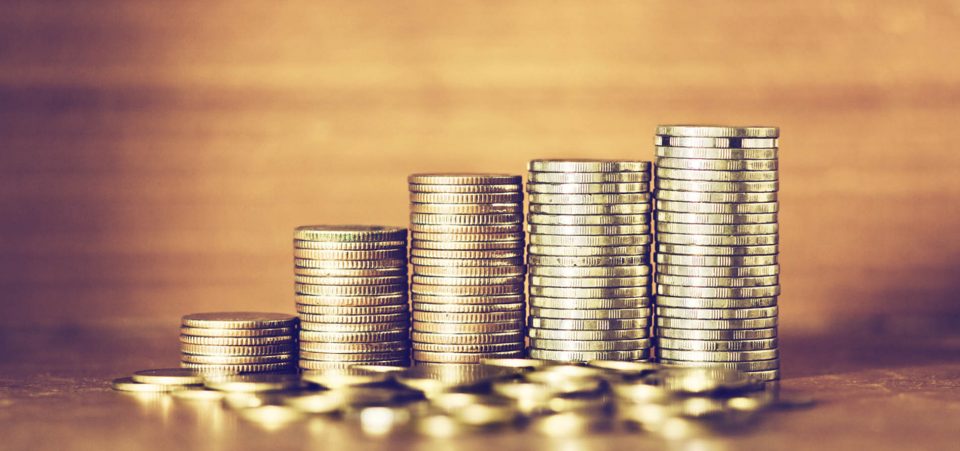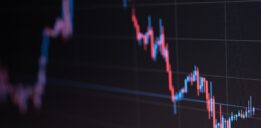Dark Clouds Still Looming Over U.S. Economy Says Larry Fink
Larry Fink of BlackRock, Inc. (NYSE:BLK) fame has issued a warning most investors were not hoping to get. Even if, deep down, they can sense he’s right. Fink has raised concerns about U.S. economic growth. Fink is not just another huckster fund manager, offering his two cents on the U.S. economic outlook in hopes of making an extra buck.
Larry Fink is the CEO of the world’s biggest asset management firm. He has customers all over the globe and world leaders pay attention when he speaks. If the world of investment management were a “church,” Larry Fink’s role within it would be that of pope. His net worth might not be much more than a famous pop star like Justin Bieber at some $350.0 million (in 2012).
Also Read:
“Economic Crash 2017” and How Next Financial Crisis Could Be Worse than 2008
5 Signs of a U.S. Economic Collapse in 2017
But, Blackrock, which Fink founded in 1988, itself manages some $5.0 trillion. That astronomical sum could literally buy a G7 economy like France or the U.K. with change to spare for Luxembourg. In other words, BlackRock commands a massive presence, and what its CEO believes or perceives carries weight.
Indeed, Blackrock’s own performance has become so “global” as to rely on the world’s leading economies continuing to grow. Larry Fink has been closely evaluating economic policies around the world, spending half of his time traveling and meeting the heads of state or government.
Larry Fink Is Still Doing Nicely, But…
Larry Fink’s net worth is said to be around $340.0 million. So far, Fink can’t complain. Blackrock closes the second quarter of 2017 with net earnings of $857.0 million, up nine percent compared to $789.0 million in the same period of 2016. The firm’s portfolio also grew handsomely this year thanks to its diversified business model and investments, including many ETF-based ones.
Thus, it might surprise many observers that Larry Fink has expressed concerns about the strong likelihood of an economic slowdown approaching. (Source: “Larry Fink Says Dark Clouds for U.S. Economy Aren’t Waning,” CNBC, July 17, 2017.)
Larry Fink has expressed concerns about “dark clouds” in the United States. He thinks inflation is not rising, as the Federal Reserve had indicated as a reason to raise interest rates. Meanwhile, the current (most favorable) 2.4% GDP growth rate remains slower than expected. President Trump would agree, given that he promised the American economy would grow at over three percent a year.
The Fact Trump Hasn’t Solved This Yet Is What Worries Fink
Fink says that the stalling healthcare reform, or rather his latest attempt at reform aimed at definitively abolishing Obamacare, contributed to his visions of a murky economic picture for the rest of 2017. Two Republican senators opposed the plan. But, it’s not so much the failure of the reform to pass that concerns Fink.
The head of Blackrock sees the failed healthcare reform as a bad omen. It has raised fears that the President’s inability to reverse Obamacare, despite a Republican majority in Congress, is a sign the rest of his programs face similar challenges getting through. The market’s rally since Trump won the 2016 election relied on his reforms being passed.
Obamacare was a test, the canary in the coal mine, if you will, that would show whether or not Trump would succeed in pushing his agenda through Congress. Investors have placed many hopes in the tax reform that the President has proposed, which includes significant cuts to corporate taxes. Trump’s plan was to use the lower taxes as an economic stimulus.
Now it looks like the best that can be said about Trump’s tax reform and infrastructure investment plan is that they’re mirages in the desert. Fink is not unique. The U.S. dollar, seemingly unbreakable until a few weeks ago, has touched a 10-month minimum. The euro, for the time being, its main rival currency, is at its highest value against the dollar in a year.
Beware: Soon the Rest of Wall Street Will Share Fink’s Concerns
Sooner or later, the rest of Wall Street will absorb Fink’s concerns about economic slowdown. Indeed, the number of pessimists and prophets of doom—and of cash savings—is steadily increasing. If the world’s largest asset manager has raised doubts about how long the upturn in equities can last, it won’t be long for the others to follow suit.
Still, many will resist the idea of a negative U.S. economic outlook. After all, the market is setting daily record highs. Trump’s tax cuts spurred many seasoned investors to expect years, not just quarters, of the current bullish equity cycle. To believe otherwise would require the equivalent of a religious conversion.
Yet the investment climate could hardly be less stable. The global economy might be climbing out of the doldrums—especially Europe. Yet, that does nothing to alleviate the fact that Wall Street is bloated with price-to-earnings ratios that have more to do with astronomy than finance. Investors risk being duped by the apparent calm of it all. High volatility means a buy signal, they think. Conversely, low volatility means “carry on, nothing to see here.”
What there’s to see is the risk that investors have become so greedy as to remain complacent. It’s like the student who scores highest on the SAT test but then fails college because he or she did not expect that continued study was necessary to pass. Likewise, investors have been rewarded with gains despite the fact that there is no valid basis for such gains. Greed might have prevailed but reality can lead to unpleasant awakenings.
Just remember, few distinguished the systemic risks associated with the financial securitization of subprime loans at the end of winter 2006-2007. Remember what happened at the end of summer 2008? Larry Fink has hinted he hasn’t forgotten that lesson.






